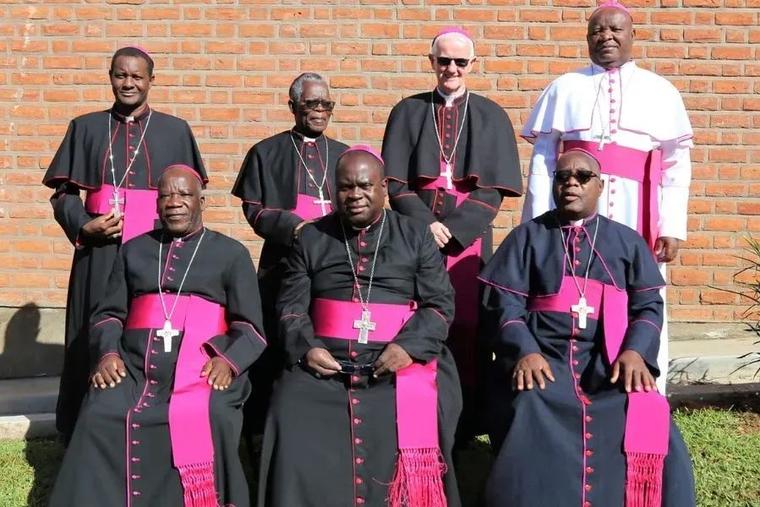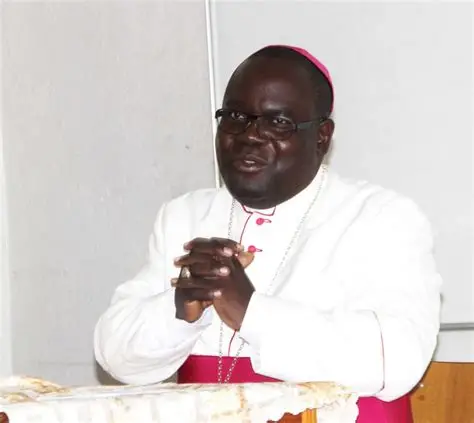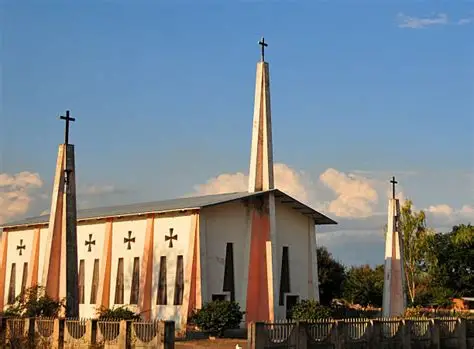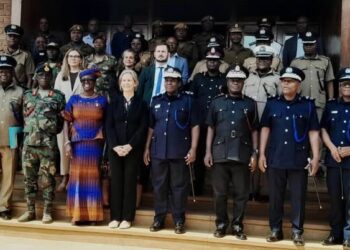Tomorrow, Malawians will witness something unprecedented and troubling. The Catholic Bishops of the Episcopal Conference of Malawi (ECM) are set to release a Pastoral Letter that, according to snippets already in circulation, amounts to a not-so-subtle endorsement of Dr. Dalitso Kabambe of the UTM.
The Letter, scheduled for release tomorrow, reportedly reviews the legacies of all Malawi’s presidents since the dawn of multiparty democracy, Bakili Muluzi, Bingu wa Mutharika, Joyce Banda, Arthur Peter Mutharika, and Dr. Lazarus McCarthy Chakwera, and concludes that each has failed the nation.
The Bishops then argue that it is time for Malawians to entrust leadership to an economist. Although not directly mentioned, this is a reference to Dr. Kabambe, a career technocrat and former Reserve Bank Governor.

If confirmed, the move represents a stunning shift from the Church’s long-standing principle of political neutrality, set to ignite heated debate in political, legal, and theological circles.
The letter is expected to be read out in Catholic Parishes across Malawi after Sunday masses barely 48 hours before voting on Tuesday, and after the official campaign period has legally closed.
Malawi Electoral Commission (MEC) laws explicitly forbid any form of campaigning after 6:00 a.m. on the Sunday preceding elections.
“This would amount to illegal campaigning by another name. If a pastoral letter that subtly singles out Kabambe is read from pulpits nationwide, it is essentially campaigning on behalf of one candidate at a time when the law bars it,” a political analyst told The Pangolin.
The move also appears to run against the Bishops’ own earlier guidance.
In their 2025 Lenten Pastoral Letter, Who Will Roll Away the Stone for Us?, the ECM categorically instructed priests not to endorse any political candidate or party, warning that Church structures must not be used for partisan purposes.
Canon Law, which governs the universal Catholic Church, is explicit on clergy participation in politics. Canon 287 §2 of the 1983 Code of Canon Law states: “Clerics are not to have an active part in political parties and in governing labor unions unless, in the judgment of competent ecclesiastical authority, the protection of the rights of the Church or the promotion of the common good requires it.”
The implication is clear. Priests and bishops are barred from partisan endorsements. Instead, Catholic Social Teaching emphasizes moral principles, dignity of life, the common good, solidarity, and the preferential option for the poor while leaving the application of these values in politics to the laity.
Fr. Andrew Mtendere, JCL, of Dedza Diocese, captured the tension in a recent commentary: “No, it is generally not lawful for a Catholic priest to directly tell Catholics to vote for a specific political candidate during general elections.”
Beyond legality, the pastoral letter risks exposing theological ironies. Kabambe, the perceived beneficiary of the Bishops’ subtle nod, is a practicing Seventh-day Adventist.
The Adventist Church has historically had uneasy relations with Roman Catholicism, rooted in doctrinal differences and mutual suspicion.
“This is a bizarre own goal. Why should Catholic bishops risk their credibility by effectively campaigning for a candidate who belongs to a denomination that often positions itself against Catholic teachings?” One Catholic lay leader in Lilongwe remarked.
By suggesting that all past leaders since 1994 have failed, the Bishops are not only delegitimizing the governing elite of the past three decades but also lending weight to Kabambe’s campaign message that Malawi needs “a professional economist” at the helm.
Yet, critics say this is not the role of the Church.

“The Catholic Bishops are risking their reputation as moral arbiters by aligning themselves, however subtly, with a single candidate. They risk eroding the trust of Catholics who support other parties,” observed one political commentator.
Malawi has a storied history of Catholic pastoral letters shaping national politics. The 1992 letter, Living Our Faith, is widely credited with catalyzing the fall of one-party rule. Subsequent letters have often offered moral critique of governance but stopped short of direct political endorsements.
If tomorrow’s letter crosses that line, it will mark the first time in three decades that the Bishops have appeared to take sides in an electoral contest, a precedent that could fundamentally reshape the Church’s role in Malawi’s democracy.
While the Bishops may believe they are offering prophetic guidance, the strategy is fraught with risks. MEC could be compelled to investigate whether the letter constitutes illegal campaigning and by appearing partisan, the Bishops undermine their ability to serve as impartial mediators in future national crises.
Again, endorsing a non-Catholic candidate may alienate Catholic faithful who already view Adventists with suspicion and if Dr. Kabambe loses, the Church risks being blamed for overstepping its mandate. If he wins, questions will linger about whether his victory was secured through undue ecclesiastical influence.
As Malawians head to the polls, tomorrow’s Pastoral Letter may either be remembered as another landmark in the Church’s prophetic witness or as a reckless overreach that compromised its neutrality.
For now, the words of the Bishops’ own Lenten Letter earlier this year stand in haunting contrast to their reported actions: “We order all our priests not to take sides or favour any candidate or political party. Any such action on the part of our priests using Church structures for political purpose will not be tolerated.”
By stepping into the partisan arena, the Catholic Bishops risk turning the sanctuary into a campaign stage, and placing the moral authority of the Church on the ballot alongside the candidates.







